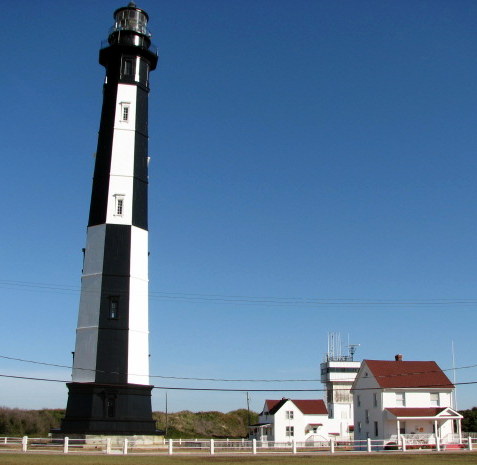Historians disagree on the real reason that the Roman empire collapsed. Was there an actual date? Many people, I suspect, think it died when Caesar was killed in 44 BC, because we all know about that, but said event did not end an empire.
The Roman empire continued for another 500 years. Its western half went to pieces in the year 476 AD, but its eastern half remained for another 1,000 years as the Byzantine empire.
Countries, empires, nations, states, towns - they come, they go. Here in my little county there are numerous little areas on the maps that once were populated communities. Lithia. Nace. Spec. Oriskany. Lignite. Haymakertown. Trinity. Horrytown. All gone, just names of areas now, a way to give someone a general idea of a specific location in a fairly large geographical area.
These places did not, as a rule, die overnight from one lethal blow. Most of the communities evaporated gradually as resources dried up, large companies turned their attention (and their accompanying fortunes) elsewhere, or some natural calamity occurred. Many of these communities produced iron ore before, during and after the Civil War, but when that no longer became a desired commodity, the little towns died away.
I fear, rightly or wrongly, that the United States is in the process of committing suicide. It will be a long, slow death, I imagine, and we may take down a good portion of the globe with us when we finally cease being the monstrous global demon that chomps on the resources of the world. We may already be eating our own tail.
In any event, I wanted to see what history might have to say about the fall of nations because we forget the lessons of the past. Many states have rose to power and died. I thought I'd look very far back.
Why did Rome fall?
The western half fell in 476 AD from an invasion by Germanic tribes. The Romans and the Goths and Vandals had long been at war, and that year Rome, Italy fell to a Germanic tribe. From then on, no ruler claimed dominion from Italy.
But the empire was already in trouble. The economy was suffering from a wide and ever-growing gap between rich and poor. The nation-state had severe financial troubles. To avoid taxation, wealthy members fled and set up little fiefdoms. Trade and crafts were dependent largely on slave labor, and as expansion failed, so too did the availability of people to exploit. Commercial and agriculture production declined.
However, as the western portion of the empire declined, its eastern half, centered around Constantinople (Byzantium), grew. Constantinople tended to be well-fortified and well-guarded, but Italy - not so much. When Rome was taken, the Byzantium empire remained in power until the 1400s, when the Ottoman Empire overwhelmed it.
The Roman empire at its height, before the west fell, was vast. It stretched from the Atlantic Ocean to the Euphrates River in the Middle East. Communication was poor, and keeping troops in strange and far-away lands became problematic. Frontiers were constantly attacked, taken, and reclaimed. As the military ate up more funds, technological advancement slowed, and infrastructure declined and was not repaired.
Rome's other issue was ineffective and inconsistent leadership. Internal strife kept the empire in chaos. At one point, during the span of 75 years, there were more than 20 men who claimed the title of emperor, usually after the murder of their predecessor. The army began assassination and installing new leaders as they pleased - once they even auctioned off the spot to the highest bidder. The Roman Senate also was full of political foul play, with politicians who failed to halt the political rot that allowed the wealthy to take advantage of those who were less fortunate. The Roman Senate was full of corruption and incompetence. As things worsened, civic pride died and citizens lost faith in the government and its leadership.
Immigration is not a new problem. The Romans grudgingly allowed members of the Visigoth tribe to cross its borders in the 4th century, but they treated the intruders poorly and cruelly. According to some reports, the Romans even forced families to trade their children with slavers in exchange for dog meat to eat in order to keep from starving. This kind of brutal treatment created enemies and eventually the oppressed people rose in revolt.
Another issue was the rise of religion. Christianity began to move in and take the place of the polytheistic Roman religion. Before this, the emperor was considered a divine being and in a sense, worshipped. But Christianity shifted the emphasis from the glory of the state onto that of a solitary divinity. Additionally, popes and other church leaders took on more important roles in the lives of ordinary people and then began to have an increased role in political affairs. This complicated governance. Some scholars believe Christianity played a role in curbing Roman civic virtue, which led to the empire's decline.
Lastly, the Romans ended up with an army composed mostly of mercenaries and not people who were loyal to the country. As the empire grew in size, emperors were unable to recruit enough soldiers, so they hired Germanic tribes to help keep order, particularly in frontier areas. However, these groups had no loyalty to the government, and power-hungry generals were able to easily turn the men against Rome. In fact, many of the soldiers who eventually brought down Rome in 476 AD were, in fact, Roman soldiers.
These are some of the reasons historians cite for the decline of the western half of the Roman Empire. There are others and of course much disagreement about all of them and the roles they played.
However, how many of these reasons can we point to today and say, with not a little alarm, that the United States is in a similar predicament?
Are we being kind to immigrants and others who are not like ourselves?
Are we taking care of our infrastructure?
Do we not have a growing gap between rich and poor?
Has our manufacturing and job growth, theoretically speaking, stagnated, particularly in regions outside of large cities where technology jobs cannot be found? (Let's bring back coal . . . )
Is our nation too big, geographically? We extend from one ocean to another. Is it reasonable to think that such a large land area is going to work together for a common good?
Do the words "political rot" sound familiar?
Does religion have too much influence in government?
No, we are not an exact parallel to the Roman Empire, thank goodness. We have progressed as human beings, though sometimes I wonder just how much. I do think, though, that there are enough parallels there that it should bring pause to anyone who wants to see the United States thrive and stand as a world leader.
There are those who want the United States to fall. Maybe we deserve that. Maybe our government has interfered and badgered and cajoled other nations so much that we deserve the bad reputation we have in other arenas.
But our people, on the whole, are not bad people, and I don't want anyone to suffer or for the United States to become a flailing and failing military power, the one that other nations point to with disgust - or at least, not with any more disgust than they already do. Believe it or not, we are not the most beloved nation in the world.
I don't want us to commit suicide. Suicide can be stopped. We don't have to jump off the bridge, use the knife, or step forward into quicksand. We can reevaluate, rethink, rework, and begin anew, if we must, to create something better and more humane than the nation we have. We can find a way to take care of our people - all of them - if we put emotion and dogma aside and use logic and reason to find answers to pressing questions.
Do we have it in us? Or is the suicide preordained?
You tell me. I'd like to know what you think.
*Thanks to history.com for some of the information about the fall of the Roman Empire.






































